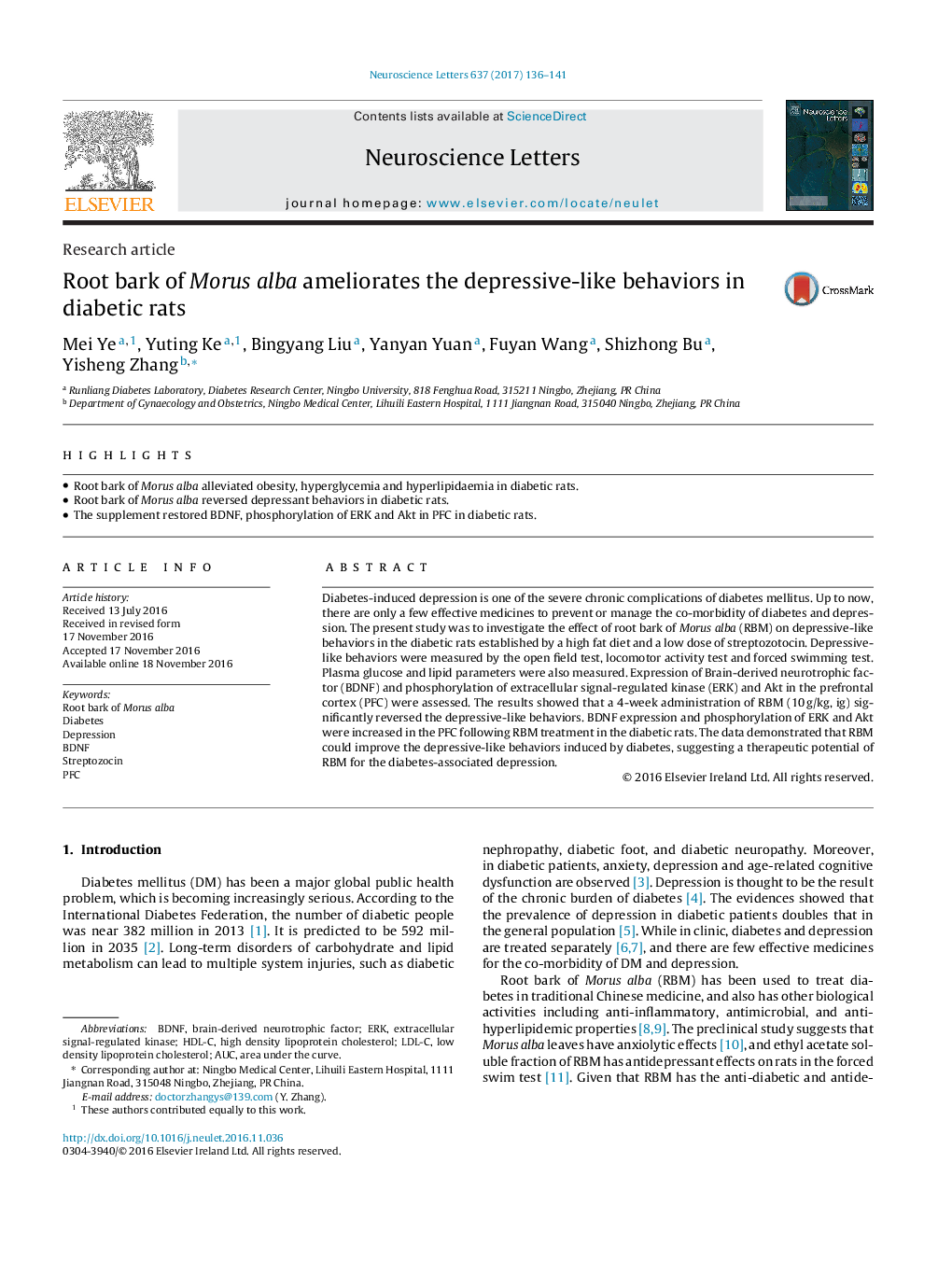| کد مقاله | کد نشریه | سال انتشار | مقاله انگلیسی | نسخه تمام متن |
|---|---|---|---|---|
| 5738901 | 1615062 | 2017 | 6 صفحه PDF | دانلود رایگان |
- Root bark of Morus alba alleviated obesity, hyperglycemia and hyperlipidaemia in diabetic rats.
- Root bark of Morus alba reversed depressant behaviors in diabetic rats.
- The supplement restored BDNF, phosphorylation of ERK and Akt in PFC in diabetic rats.
Diabetes-induced depression is one of the severe chronic complications of diabetes mellitus. Up to now, there are only a few effective medicines to prevent or manage the co-morbidity of diabetes and depression. The present study was to investigate the effect of root bark of Morus alba (RBM) on depressive-like behaviors in the diabetic rats established by a high fat diet and a low dose of streptozotocin. Depressive-like behaviors were measured by the open field test, locomotor activity test and forced swimming test. Plasma glucose and lipid parameters were also measured. Expression of Brain-derived neurotrophic factor (BDNF) and phosphorylation of extracellular signal-regulated kinase (ERK) and Akt in the prefrontal cortex (PFC) were assessed. The results showed that a 4-week administration of RBM (10Â g/kg, ig) significantly reversed the depressive-like behaviors. BDNF expression and phosphorylation of ERK and Akt were increased in the PFC following RBM treatment in the diabetic rats. The data demonstrated that RBM could improve the depressive-like behaviors induced by diabetes, suggesting a therapeutic potential of RBM for the diabetes-associated depression.
Journal: Neuroscience Letters - Volume 637, 10 January 2017, Pages 136-141
